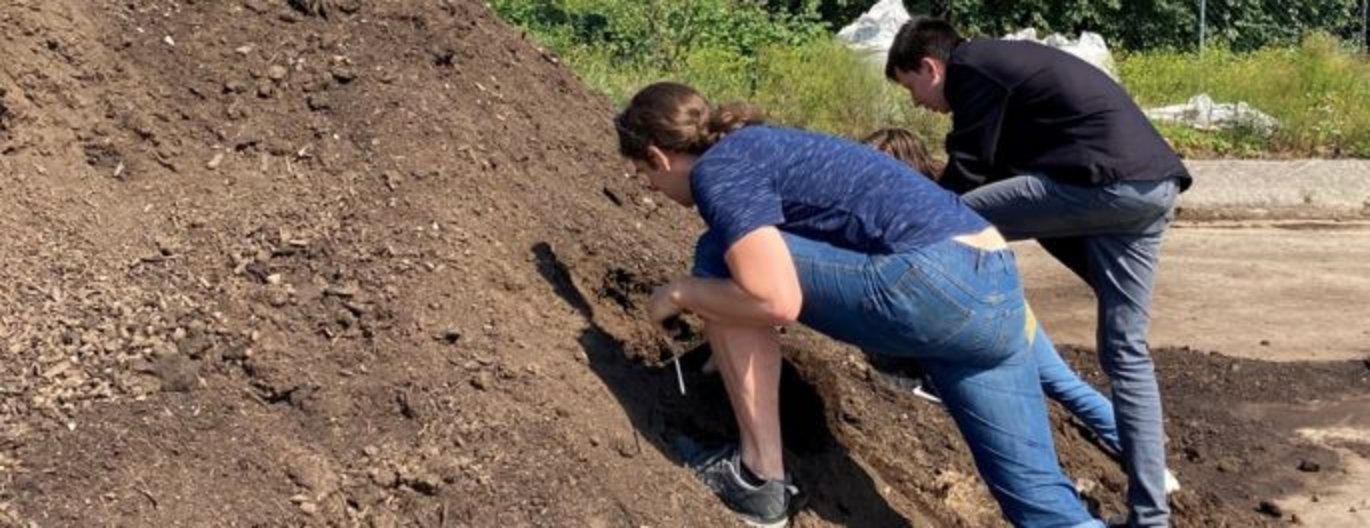Visiting GRAND FARM - Witnessing how crucial soil is for our survival
GRAND FARM makes use of the environment and co-exists with owls, earthworms and trees. An organic farm, contributing to finding of solutions and sharing of results and experiences while improving the supply of healthy food and the protection of soils. By: Isabella Gehken and Dean Jordanski, summer interns at the Institute of Soil Research, BOKU, Tulln, under the supervision of Elizabeth Ziss and Rebecca Hood-Nowotny.

Hidden in the Austrian countryside lies the GRAND FARM, an organic farm working closely together with multiple universities and institutions on crucial topics such as soil health and climate change. Alfred Grand, organic farmer and founder of the GRAND FARM, tackles the challenges of a green and environmentally friendly future. His focus is on three main pillars: soil-health, agroforestry and market gardening.
Healthy soil is essential for the farmers and the crops, as well as for the consumers relying on the produced goods. While more and more people are paying attention to the products that they buy, people seem to forget about the importance of high quality soil. To keep the soil healthy and fertile, Alfred Grand is composting with the help of earthworms. The earthworms transform compost into fertile humus, which makes it easier for crops to grow. This process is called “Vermicomposting” and is essential in their finished earthworm fertilizer for everyone to use.
Agroforestry is the cultivation of trees among crops. Although it is not seen very often in Austria, it comes with many benefits. The trees suck the CO2 out of the atmosphere. In addition, they increase biomass production and lower the wind speed that, consequently, reduces evaporation. Furthermore, trees act as a habitat for wildlife. Using agroforestry, the effects of climate change are being reduced while benefiting the crops and the farmers at the same time.
The Market Garden serves a regional supply of vegetables, which are grown at the GRAND FARM. The production is designed for a high area output and produces healthy food/products with a high variety on a small area. With different methods of cultivation, the market garden is able to harvest all year round. Production, storage and distribution are in the process of being converted to 100% energy self-sufficient. By doing that they improve the supply of healthy products and protect soil at the same time.

Isabella and Dean measure maize chlorophyll levels, as part of their internship at IBF BOKU. Photo: Rebecca Hood-Nowotny
First-hand experience at the GRAND FARM
Arriving at the GRAND FARM, we were welcomed by Alfred Grand. He told us how the farm and the vermicomposting first came to life. We witnessed first-hand how the GRAND FARM makes use of their environment, for example moving owls to their location so that they can hunt the mice that live there, thus not using any harmful chemicals. This demonstrates how beneficial it can be to co-exist with existing wildlife rather than eradicating it. We also had the chance to see one of the rarer bees in Austria, the carpenter bee.
Near the GRAND FARM lies the vermicomposting barn, which is where all the earthworms do the composting. Alfred Grand talked us through the process of the composting. After seeing the vermicomposting, it seemed evident that more farmers should take up this sort of composting.
The effects of climate change are important issues that especially concern our generation. Yet many forget about the importance of fertile soil and sustainable environmentally friendly agriculture and how crucial it is for our survival.

Contact
Rebecca Hood-Nowotny, Senior Scientist: rebecca.hood@boku.ac.at
University of Natural Resources and Life Sciences Vienna, Department of Forest and Soil Sciences
For information on Research and Demonstration, please contact Andreas Baugarten: andreas.baumgarten@ages.at
For more information about GRAND FARM:
https://www.euronews.com/2020/09/21/on-a-mission-to-save-our-soils-the-eu-s-plan-to-rebuild-the-land